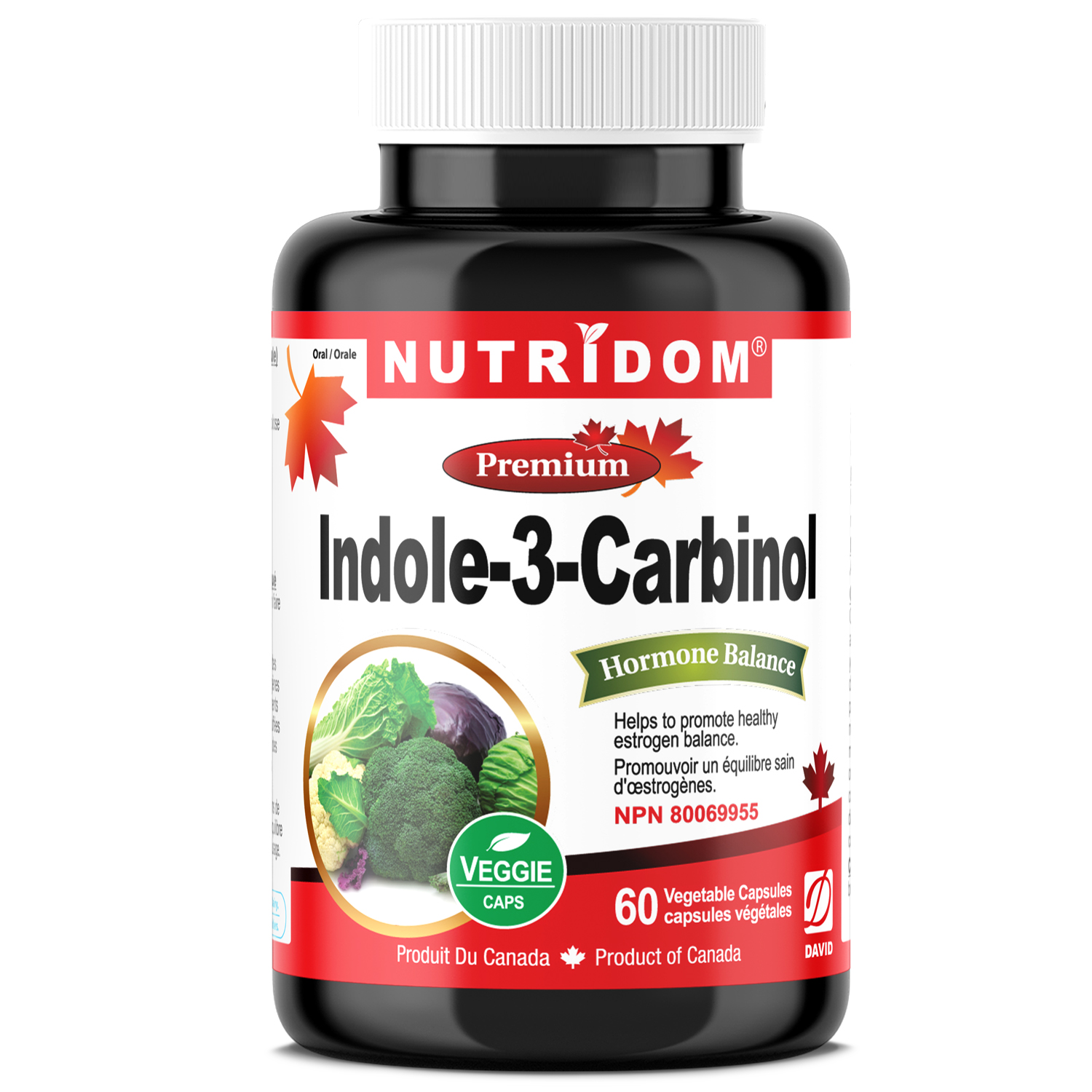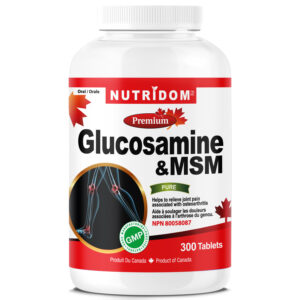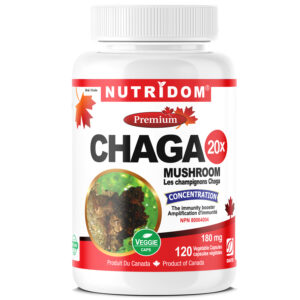Nutridom Indole-3-Carbinol 60 Vcaps
$0.00
Highlights
- Pure Indole-3-carbinol (I3C) 400 mg per capsule
- Helps to support/promote healthy estrogen metabolism/balance.
- Powerful antioxidant activity
- Anti-inflammatory effects
- Beneficial phytochemical found in cruciferous vegetables
PRODUCT RESEARCH / SAFETY
What is Indole-3-Carbinol?
- Indole-3-carbinol (I3C) is a phytochemical derived from the enzymatic breakdown
of glucobrassicin, a compound found in cruciferous vegetables such as brussels
sprout, cabbage, broccoli, mustard greens, kale, and cauliflower (1). - When raw cruciferous vegetables are chopped or chewed, glucobrassicin in the
damaged plant cells breakdown by plant enzyme (myrosinase) in the stomach and
small intestine (2). - However, when cruciferous vegetables are cooked, the generation of I3C from
glucobrassicin is prevented due to the inactivation of a plant enzyme. Thus, intact
glucobrassicin is metabolized by bacterial myrosinase and I3C is produced in the
large intestine (2).
Key Benefits of Indole-3-Carbinol
1. Estrogen balance
Indole-3-carbinol helps to promote healthy estrogen metabolism and balance by
modulating the estrogen regulation cycles in several ways to decrease the risk of
certain tumors (3). A study found that oral supplementation with 300-400 mg/d of I3C
has significantly increased urinary 2-hydroxyestrone (2OHE) levels known as a good estrogenic metabolite (4).
2. Anti-inflammatory effects
Indole-3-carbinol helps reduce the production of inflammatory molecules, such as
cytokines and prostaglandins because I3C is associated with the modulating
inflammatory mediators and several signaling pathways involved in inflammation. A
study showed that inflammation and oxidative damage play critical roles in
cardiovascular disease and I3C is a potent cardioprotective phytochemical due to its
anti-inflammatory and antioxidant effects on the cardiovascular mechanism (5).
3. Powerful antioxidant activity
Oxidative stress is known to contribute to the development of chronic diseases such
as cardiovascular disease, neurodegenerative disorders, and certain cancers.
Indole-3-carbinol is a powerful antioxidant reducing oxidative stress from free
radicals due to the free radical neutralizing effects and can protect body cells from
the oxidative reactions. By reducing oxidative stress, I3C may have potential benefits
in promoting overall health and reducing the risk of chronic diseases (5).
4. Modulation of cell-signaling pathways
In cancer cells, the cell cycles including cell proliferation, apoptosis, migration,
invasion, angiogenesis, and immunity are often uncontrolled. Indole-3-carbinol has
positive effects on the cell-signaling pathways and its functions can support cellular
health (6).
REFERENCES
1. Holst, B., & Williamson, G. (2004). A critical review of the bioavailability of
glucosinolates and related compounds. Natural Product Reports, 21(3),
425–447
2. Barba, F. J., Nikmaram, N., Roohinejad, S., Khelfa, A., Zhu, Z., & Koubaa, M.
(2016). Bioavailability of Glucosinolates and Their Breakdown Products: Impact
of Processing. Frontiers in Nutrition (Lausanne), 3, 24–24.
3. Bell, M. C., Crowley-Nowick, P., Bradlow, H. L., Sepkovic, D. W., Schmidt-
Grimminger, D., Howell, P., Mayeaux, E. J., Tucker, A., Turbat-Herrera, E. A., &
Mathis, J. M. (2000). Placebo-Controlled Trial of Indole-3-Carbinol in the
Treatment of CIN. Gynecologic Oncology, 78(2), 123–129.
4. Higdon, J. V., Delage, B., Williams, D. E., & Dashwood, R. H. (2007). Cruciferous
vegetables and human cancer risk: epidemiologic evidence and mechanistic
basis. Pharmacological Research, 55(3), 224–236.
5. Prado, N. J., Ramirez, D., Mazzei, L., Parra, M., Casarotto, M., Calvo, J. P., Cuello
carrión, D., Ponce Zumino, A. Z., Diez, E. R., Camargo, A., Manucha, & Walter,
M. (2022). Anti-inflammatory, antioxidant, antihypertensive, and antiarrhythmic
effect of indole-3-carbinol, a phytochemical derived from cruciferous
vegetables. Heliyon, 8(2), e08989–e08989.
6. Licznerska, B. E., Szaefer, H., Murias, M., Bartoszek, A., & Baer-Dubowska, W.
(2013). Modulation of CYP19 expression by cabbage juices and their active
components: indole-3-carbinol and 3,3′-diindolylmethene in human breast
epithelial cell lines. European Journal of Nutrition, 52(5), 1483–1492.
SUPPLEMENT FACTS






